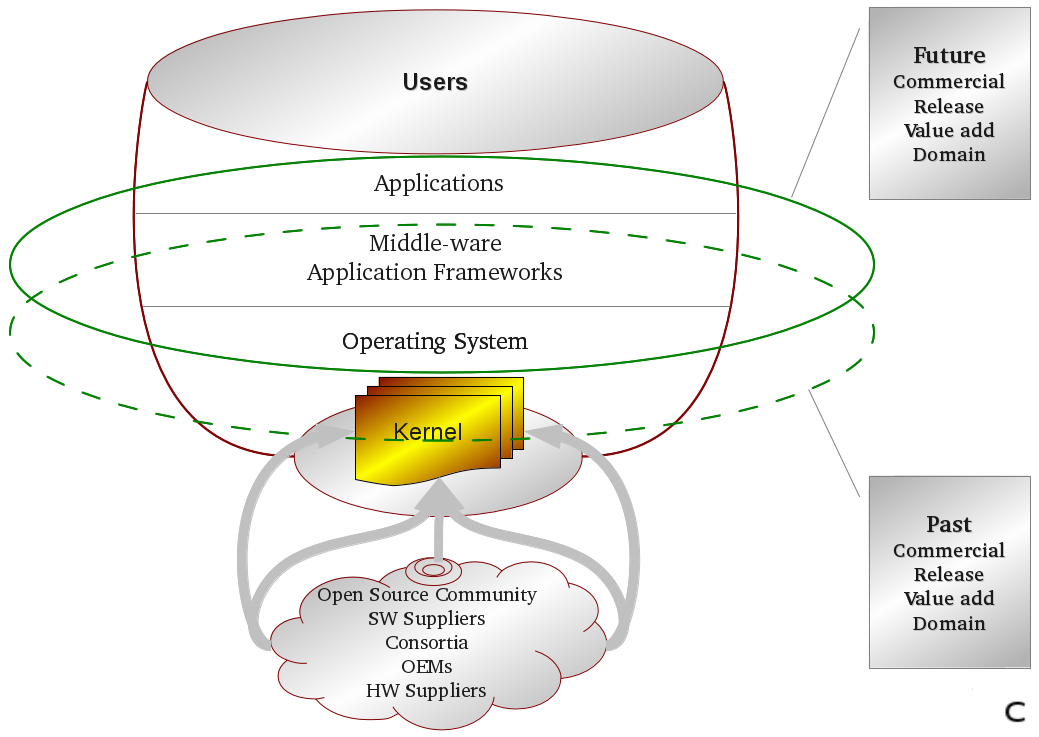Industrial Training and Project in Device Drivers Development

This is a Hands-on, project based career oriented, training program for BE, B Tech, ME, M Tech from the streams of Electronics, Computer Science, Information Technologies, Instrumentation or Master of Computer Applications students, who are seeking Industrial and Project exposure and want to understand the industrial project experience. This trainig aims at graduating you... from a student to professional, building your career with respect to innovative technologies related to Linux - Fedora, Ubuntu, Debian, System Administration, Network Administration, C Programming, Embedded Linux, ARM.
This project based training program is specially designed for final year engineering students. Such that they get true exposure of the industrial environment bt doing projects and are ready for adopting innovative technologies.
Modules and Projects in the Training
|
Serial No |
Module No |
Project Module |
Working Days |
Sessions 2 Hrs |
Labs 4 Hrs |
| 1 | 00 | 5 working days | 5 Sessions | 5 Labs | |
|
After This Module/Project is over, the trainee should be able to understand / implemtnt the following:-
|
 |
||||
| 2 | 11 |
Shell Scripting using Bash ... |
10 working days | 10 Sessions | 9 Labs |
|
After This Module/Project is over, the trainee should be able to understand / implemtnt the following:-
|
 |
||||
| 3 | 12 |
Linux Networking & Network Administration... |
8 working days | 8 Sessions | 8 Labs |
After This Module/Project is over, the trainee should be able to understand / implemtnt the following:-
|
 |
||||
| 4 | 01 | Data Structures using C ... | 35 working days | 25 sessions | 35 labs |
|
After This Module/Project is over, the trainee should be able to understand / implemtnt the following:-
|
 |
||||
| 5 | 05 | Character Device Driver Development ... | 30 working days | 20 sessions | 30 labs |
|
After This Module/Project is over, the trainee should be able to understand/implemtnt the following:-
|
 |
||||
| 100 working days | 67 Sessions | 87 Labs | |||
Salient Festures of The Training Program:
-
Training Objective:
-
Pre-requisite
- The candidate should be already persuing any of the Following programs:-
- BE, B Tech in Computer Science, Electronics, Information Technology, instrumentation.
- ME, M Tech in Computer Science, Electronics, Information Technology, instrumentation or MCA.
- Agenda:
- The Duration of Training Would be:
- 119 Classroom Sessions of 2 Hours each.
- 178 Lab Sessions of 4 hours each.
- Training Methodology:
- The first four modules are mandatory
- Hands on approach to training, behaviorial model of training would be practiced.
- During the training, the Trainee whould implement a complete project nased on Embedded Linux and ARM
- Comitment to Individual growth and constant evaluation.
- Unlimited access to Lab during Training.
Deliverables:
- After the training is over, The Trainee should be able to:- click here...
- use the concept absorbed in the real world situation.
- implement knowledge absorbed in theiir commercial / live projects.
- The probablity for a head-start to the taiinees career should be higher.
-
EmbLogicTM would issue/provide the following:-
- Project Report for Submitting into their college.
- Project presentaation and demonstration assistance.
- Completed Project (by the trainee).
- Certificate of Completion for the training and Project as mentioned above.
EmbLogic™ is an ISO 9001:2008(QMS) (Quality Management System) Certified Company.
